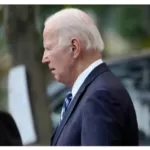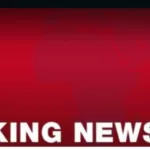In response to stern warnings from the United States over what the White House labeled an “unprecedented” buildup of Serbian troops and armored vehicles on the Kosovo border, Serbia has initiated a partial withdrawal of its forces. Serbian President Aleksandar Vučić made this announcement, emphasizing that military action would be counterproductive and stressing that Serbia does not seek war.
A Kosovan government official confirmed the partial Serbian withdrawal on Saturday. Troops and equipment that had been positioned along the border in the past five days were relocated, although a significant force that is permanently stationed in the region remains in place.
The White House publicly expressed its concerns, and US Secretary of State Antony Blinken had a stern conversation with President Vučić. In addition, NATO’s peacekeeping force in Kosovo, Kfor, received reinforcement with the deployment of hundreds of British troops.
During his conversation with Vučić, Blinken called for “immediate de-escalation” and a return to the previously agreed-upon normalization of relations with Kosovo. Vučić reported that Blinken mentioned the possibility of US measures against Serbia if compliance was not achieved, to which Vučić responded, “I said you’re a superpower and you can do or say what you want, but I am completely against that.”
On Saturday evening, Germany’s Ambassador to the US, Andreas Michaelis, characterized the situation as “another powder keg in Europe” and a serious danger that warrants attention. Michaelis highlighted the close cooperation between Germany and the US in efforts to prevent further escalation, asserting that Serbia must take action.
The recent escalation of tension began with an ambush by well-armed Serb paramilitaries on a Kosovan police patrol earlier in the week, resulting in the death of a police officer and three Serb gunmen. Milan Radoičić, the deputy leader of Serb List, a Belgrade-backed party representing the Serb minority in northern Kosovo, led the armed group. Radoičić claimed responsibility for the gunfight with Kosovan police but did not clarify the source of the modern weaponry carried by the paramilitaries.
The Kosovan government presented evidence suggesting that the Serbian army had provided the group with a grenade launcher, raising concerns in Pristina that the gunfight was intended to serve as a pretext for a Serbian military intervention in northern Kosovo.
In response to the incident, Serbia declared a day of mourning for the three deceased Kosovo Serbs. President Vučić falsely asserted that Kosovo forces were engaged in a campaign of “brutal ethnic cleansing” against ethnic Serbs.







